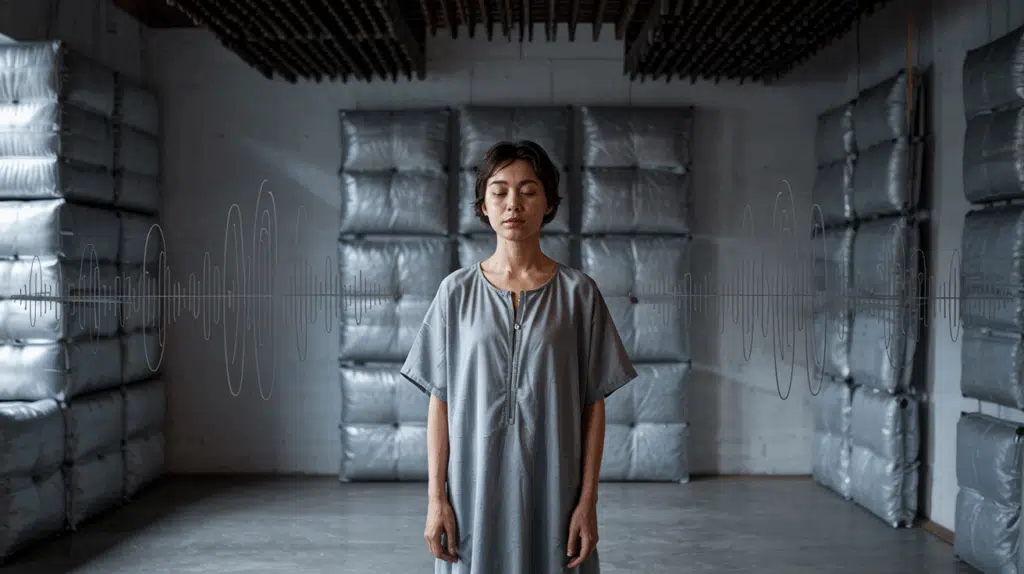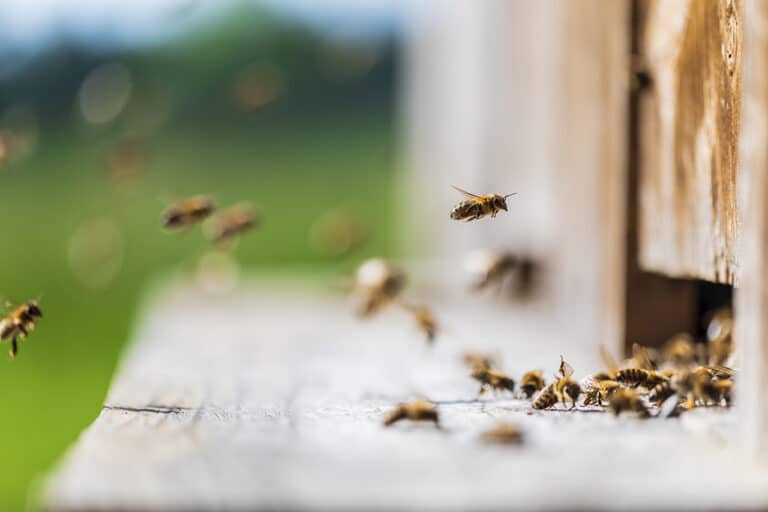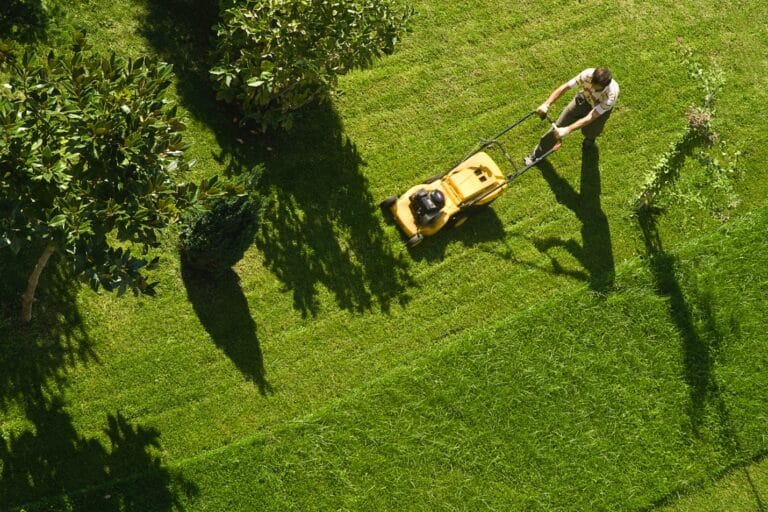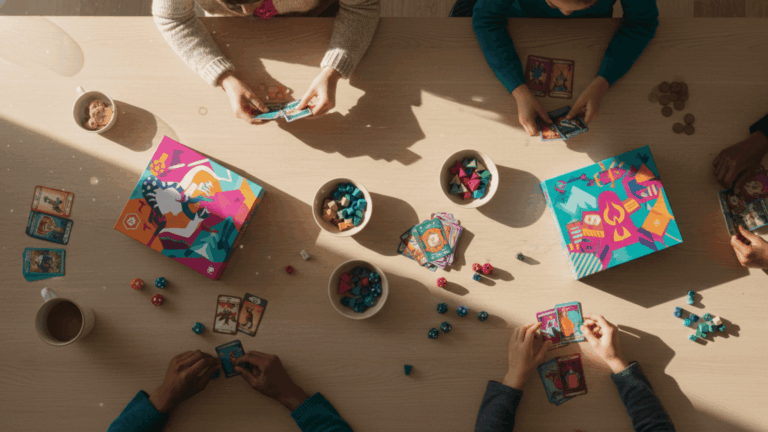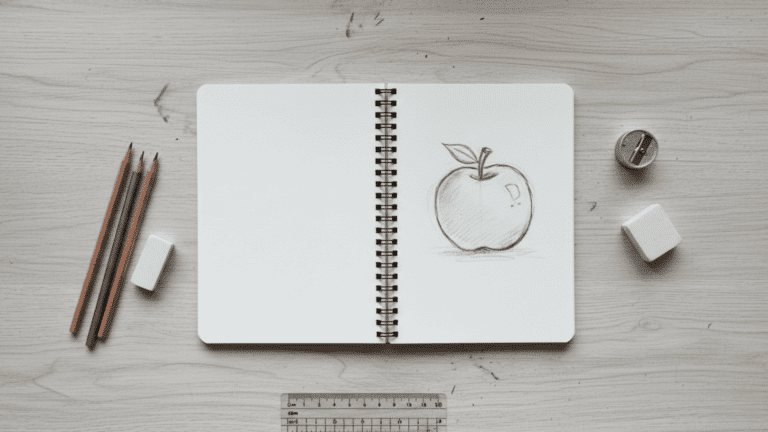Silence is a fleeting state that many people find hard to maintain in today’s noisy world. What is so fragile that saying its name breaks it? The answer is silence itself.
When someone mentions the word “silence,” it vanishes at once. This makes it one of the most basic yet puzzling concepts to explain.
The writer presents a straightforward solution to this unusual problem. Examining silence as both a physical and mental state enables us to appreciate its true value in our lives, beyond merely the absence of sound.
This post will present readers with three ways to think about silence, its impact on daily life, and how to find moments of quiet without having to label them.
Each section will build on the last to give a full picture of this fragile concept.
The Nature of Silence: The Peace Within

What is so fragile that saying its name breaks it?
Silence sits at the top of this riddle’s answer list. Silence exists in a special state – it’s both a physical absence and a mental choice. In the physical world, silence refers to the lack of sound waves moving through the air. Yet true silence rarely exists in nature.
Even in the quietest room, blood rushes through our ears.
The paradox comes when we try to point it out. What is so fragile that saying its name breaks it?
The moment we mention “silence,” we create sound waves that destroy the very thing we name. This makes silence unlike almost anything else we experience.
Scientists tell us humans can’t handle complete silence well. In specially designed quiet rooms, people often feel uncomfortable after just a few minutes. Our brains seem wired to need some background noise.
Silence comes in many forms in daily life. There’s the comfortable quiet between close friends, the awkward pause in conversation, and the peaceful hush of early morning.
Each type serves different purposes, from providing space for thought to creating social pressure. Understanding these different forms helps us use quiet moments more effectively.
Let’s Trick the Brain with Some More Riddles
Ready for a mental workout?
Riddles do more than make us think. They prompt our minds to view problems from new angles. The best ones make us smile when we finally see the simple answer that was hiding in plain sight.
Here are some fun brain teasers to share with friends or use at your next gathering. Some may seem simple, others might keep you guessing for days.
The OGs and All-Time Classic Riddles

-
What has words, but never speaks?
A book. -
What kind of band never plays music?
A rubber band. -
What has one eye, but can’t see?
A needle. -
If you’re running in a race and you pass the person in second place, what place are you in?
Second place. -
What can go through glass without breaking it?
Light. -
What can you keep after giving it to someone?
Your word. -
Where do you take a sick boat?
To the dock-tor. -
What has a neck but no head?
A bottle. -
I have a face and arms, but no legs. What am I?
A clock. -
I’m tall when I’m young, and I’m short when I’m old. What am I?
A candle. -
What kind of apples do computers prefer?
Macintosh. -
What did the sea say to the sand?
Nothing, it just waved. -
I have no life, but I can die. What am I?
A battery. -
I go around the world, but never leave the corner.
A stamp. -
What’s black and white and read all over?
A newspaper. -
If you threw a black stone into the Red Sea, what would it become?
Wet. -
What is the fastest way to double your money?
Place it in front of the mirror. -
Why did the golfer put on a second pair of pants?
He hit a hole in one. -
If you’ve got me, you want to share me; if you share me, you haven’t kept me.
A secret. -
What has 13 hearts but no other organs?
A deck of cards. -
What month of the year has 28 days?
All of them. -
What tastes better than it smells?
Your tongue. -
The more you take, the more you leave behind. What am I?
Footsteps. -
What is always in front of you but can’t be seen?
The future. -
What gets wetter the more it dries?
A towel. -
What has a head, a tail, but no body?
A coin. -
What comes once in a minute, twice in a moment, but never in a thousand years?
The letter M. -
What is full of holes but still holds water?
A sponge. -
What can travel around the world while staying in a corner?
A stamp. -
What has keys but can’t open locks?
A piano. -
What has hands but can’t clap?
A clock. -
What is so fragile that saying its name breaks it?
Silence. -
What belongs to you, but other people use it more than you do?
Your name. -
What has many teeth but can’t bite?
A comb. -
What gets bigger the more you take away?
A hole. -
What can you catch, but not throw?
A cold. -
What kind of tree can you carry in your hand?
A palm. -
What has a thumb and four fingers, but is not alive?
A glove. -
What has legs, but doesn’t walk?
A table. -
What has a head and a tail, but no body?
A coin.
Tricky & Challenging Riddles

-
What comes down but never goes up?
Rain. -
What can be broken, but is never held?
A promise. -
What has cities, but no houses; forests, but no trees; and water, but no fish?
A map. -
What is easy to lift but hard to throw?
A feather. -
What has many keys but can’t open a single lock?
A piano. -
What can fill a room but takes up no space?
Light. -
What kind of coat is best put on wet?
A coat of paint. -
What word is spelled incorrectly in every dictionary?
Incorrectly. -
What gets sharper the more you use it?
Your brain. -
What has a ring but no finger?
A telephone. -
What begins with T, ends with T, and has T in it?
A teapot. -
What has an endless supply of letters but starts empty?
A mailbox. -
What can you hold in your left hand but not in your right?
Your right elbow. -
What has four eyes but can’t see?
Mississippi. -
What has a bottom at the top?
Your legs. -
What kind of room has no doors or windows?
A mushroom. -
What goes up but never comes down?
Your age. -
What begins with an E, ends with an E, but only contains one letter?
An envelope. -
What has a spine but no bones?
A book. -
What has a bed but never sleeps and a mouth but never eats?
A river. -
What is always coming, but never arrives?
Tomorrow. -
What can you break, even if you never pick it up or touch it?
A promise. -
What has a head, a tail, is brown, and has no legs?
A penny. -
What comes once in a year, twice in a week, and never in a day?
The letter E. -
What has an eye but cannot see?
A hurricane. -
What has a heart that doesn’t beat?
An artichoke. -
What gets smaller every time it takes a bath?
Soap. -
What is always in the middle of nowhere?
The letter H. -
What is always answered without being asked a question?
A telephone. -
What is made of water but if you put it into water it dies?
An ice cube. -
What kind of tree fits in your hand?
A palm. -
What can you catch but not throw?
A cold. -
What has a bark, but no bite?
A tree. -
What has a ring but no finger?
A telephone. -
What has a head and a tail but no body?
A coin. -
What is full of holes but still holds water?
A sponge. -
What gets bigger the more you take away from it?
A hole. -
What has a thumb and four fingers but is not alive?
A glove. -
What has legs but doesn’t walk?
A table. -
What has a face and two hands but no arms or legs?
A clock.
Fun, Creative & Lateral Thinking Riddles

-
What is seen in the middle of March and April that can’t be seen at the beginning or end of either month?
The letter R. -
What has an end but no beginning, a home but no family, and a space without a room?
A keyboard. -
What is always in front of you but can’t be seen?
The future. -
What has a tail and a head but no body?
A coin. -
What comes once in a minute, twice in a moment, but never in a thousand years?
The letter M. -
What can you hold without ever touching or using your hands?
Your breath. -
What has to be broken before you can use it?
An egg. -
What has a neck but no head?
A bottle. -
What has a foot but no legs?
A snail. -
What can run but never walks, has a mouth but never talks, has a head but never weeps, has a bed but never sleeps?
A river. -
What has many teeth but can’t bite?
A comb. -
What has a bank but no money?
A river. -
What comes up but never goes down?
Your age. -
What has a thumb and four fingers but is not alive?
A glove. -
What has a head and a tail but no body?
A coin. -
What is full of holes but still holds water?
A sponge. -
What gets bigger the more you take away from it?
A hole. -
What is so fragile that saying its name breaks it?
Silence. -
What has a face and two hands but no arms or legs?
A clock. -
What has keys but can’t open locks?
A piano. -
What has a ring but no finger?
A telephone. -
What has a heart that doesn’t beat?
An artichoke. -
What gets smaller every time it takes a bath?
Soap. -
What is always in the middle of nowhere?
The letter H. -
What is always answered without being asked a question?
A telephone. -
What is made of water but if you put it into water it dies?
An ice cube. -
What has a bark, but no bite?
A tree. -
What has a bed but never sleeps and a mouth but never eats?
A river. -
What has a spine but no bones?
A book. -
What is always coming, but never arrives?
Tomorrow. -
What is easy to get into, but hard to get out of?
Trouble.
Summing It Up
Looking back at our discussion, we now understand why silence truly fits the riddle: what is so fragile that saying its name breaks it? Silence demands our respect precisely because of its delicate nature.
By incorporating quiet moments into our daily routine, we can think more clearly, communicate more effectively, and feel calmer. Even five minutes of quiet each day can make a significant difference in how we process our thoughts.
What’s your next step? Try creating a small pocket of quiet time tomorrow. Turn off notifications, find a peaceful spot, and sit in a calm place. Notice how your mind responds when not bombarded by noise.
Perhaps leave a comment below sharing your experience with silence. Has understanding what is so fragile that saying its name breaks it changed how you view quiet moments?
Your thoughts might help others find value in silence as well.

